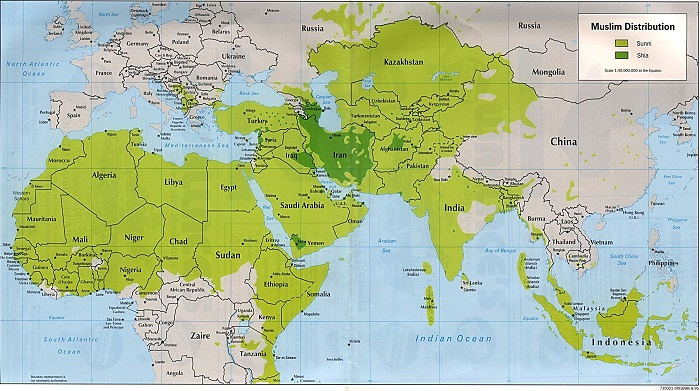World of Islam Needs Iranian Diplomacy

Since long ago, there have been ups and downs in relations between the countries of the Middle East which is now filled with tension. Internal crises in Iraq and Syria and different positions of the Islamic countries with regard to these issues are one of the causes of these differences. Saudi Arabia’s strikes against Yemen, obstacles created by the Persian Gulf Islamic states particularly Saudi Arabia in the resolution of the nuclear crisis of the Islamic Republic of Iran and finally the execution of a Shiite scholar for his support of the Shiite minority in Saudi Arabia are also the sources of tension in this region. The execution of this scholar led to widespread protests by the Islamic Republic of Iran and unfortunately an attack against the Saudi embassy in Iran and ultimately the cutting of ties by Saudi Arabia and a few other countries.
The Organization of Islamic Cooperation which was founded more than forty years ago on the basis of the fight against the common enemy, Israel, has now become an ineffective organization which only holds ceremonial meetings. The differences between the Islamic countries have reached a climax and the relations between some of them and Israel are becoming warmer. It seems that the present complex situation is the result of several crises and problems in the world of Islam which, if not resolved soon, will have grave consequences for these countries.
The first crisis is the “lack of a powerful and charismatic leader” which could be accepted by all Islamic states. Saudi Arabia claims to lead the world of Islam while it does not have the merit to be in that status. In the Islamic texts, intelligence, patience, organizational power, collaboration, innovation and advancement of issues based on consultation of all members are considered as the most important characteristics of an Islamic leader. Nonetheless, Saudi Arabia has shown with its policies that it does not have the above-mentioned characteristics to lead the world of Islam. An indication of this policy is its attempts to create a front against the Islamic Republic of Iran after the attack against its embassy. Among the 57 members of the OIC, only four small states collaborated with Saudi Arabia. Regional and extra-regional policies of Saudi Arabia show that what is important for this country is power-seeking and remaining in regional competitions in any possible way.
Growing ethnic differences is another crisis which has damaged the unity of the world of Islam. Contrary to the attempts made by the Islamic Republic of Iran towards the unity of the Sunnis and the Shiites and highlighting common religious points, other Islamic states enflame ethnic differences and, by exaggerating the differences between the Shiites and the Sunnis and spreading hatred, prevent the unity and solidarity of the Islamic Ummah. There is no doubt that Saudi Arabia plays a great role in this regard through strengthening the ethnic ideology of Wahabism and Salafism.
The unpopular and weak governments which rule the Islamic states is another problem which has shaken Islamic unity. Unfortunately, the leaders of most of the Islamic states do not have any root in the public opinion of their countries and, naturally, are not bound to provide the demands and interests of their people. Therefore, these states are shaky players which do not have any stability of opinion and only think about temporary privileges and help given by other countries. Under such conditions, their policies in the world of Islam and at the regional level are very unstable.
It seems that so long as the world of Islam is faced with such problems, one cannot talk about the unity and solidarity of this world. Perhaps, the realistic solution would be to achieve a solution similar to that of the successful model of Iran’s nuclear agreement with the P5+1. Then, while accepting the differences and different interests, these countries could gather together for higher objectives and progress of the world of Islam and the fight against the common enemy. They could focus and agree on the common points without threatening each other. Certainly, Iran’s Foreign Ministry, with all its successful experiences, can be the frontrunner and propose initiatives in the resolution of the regional crises.

